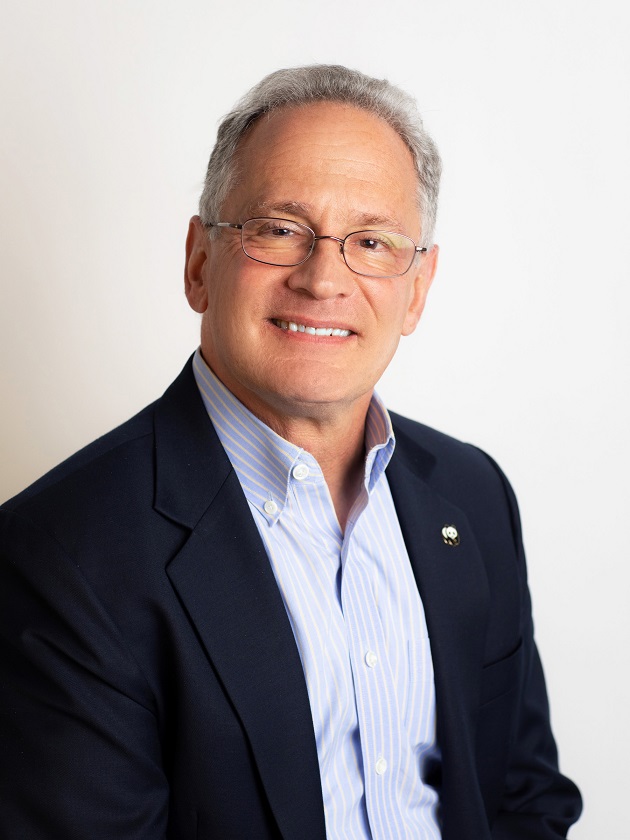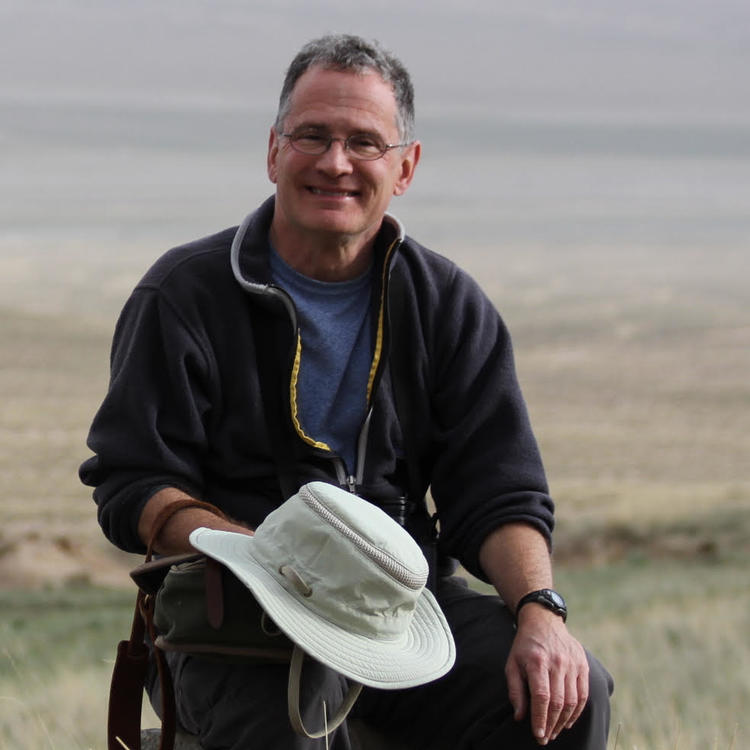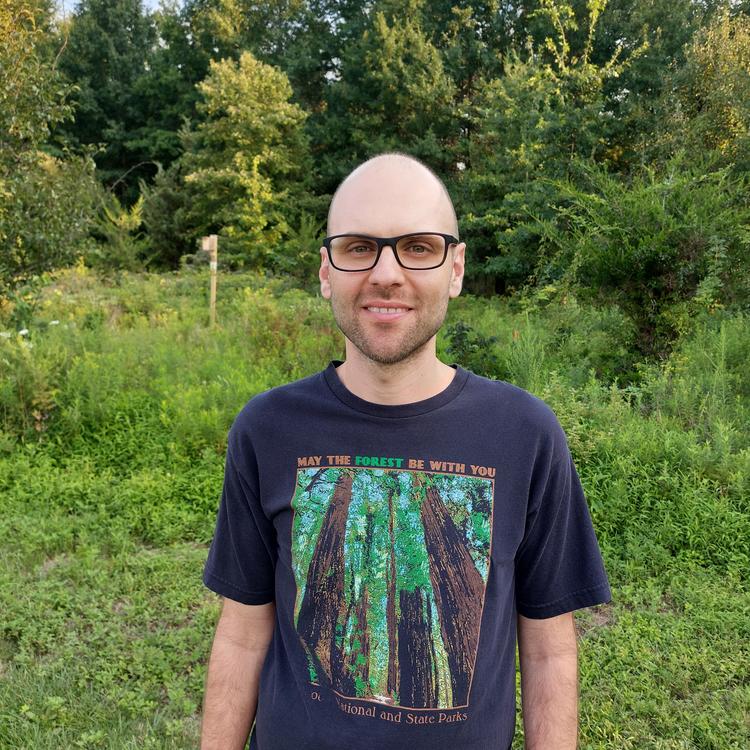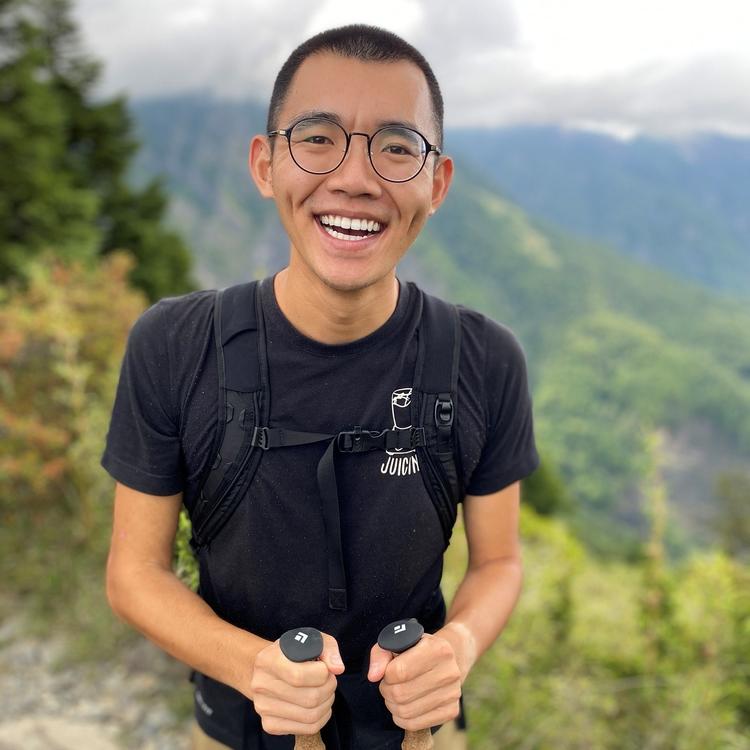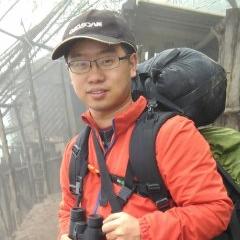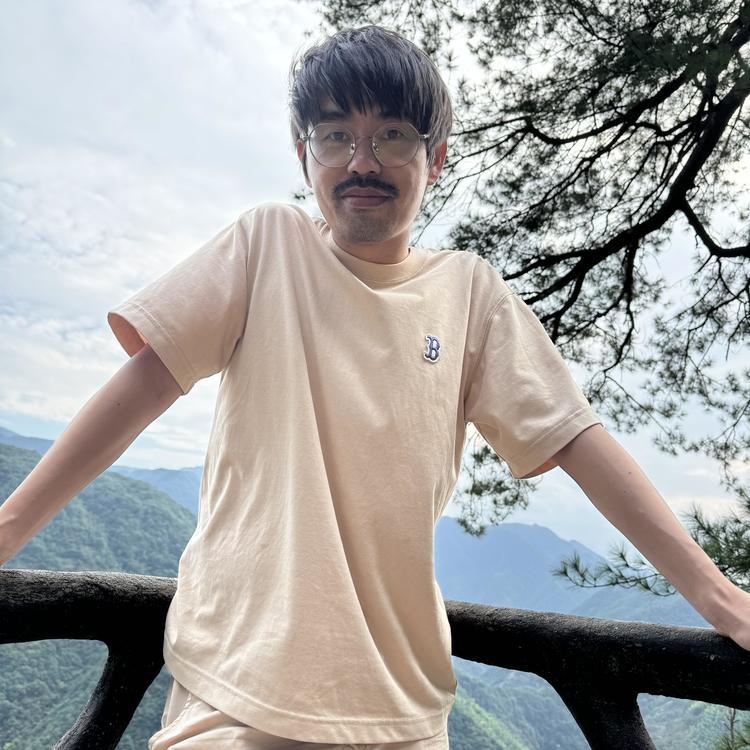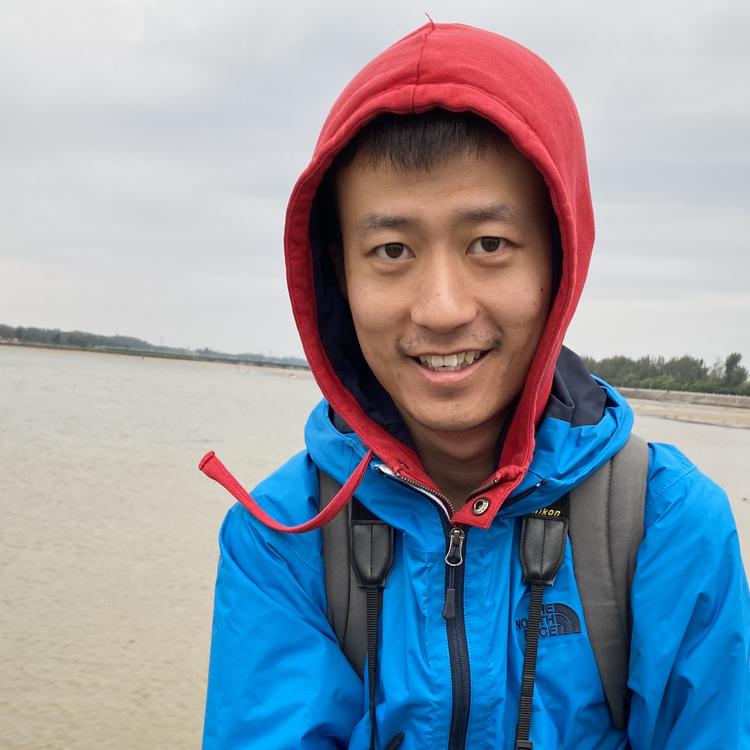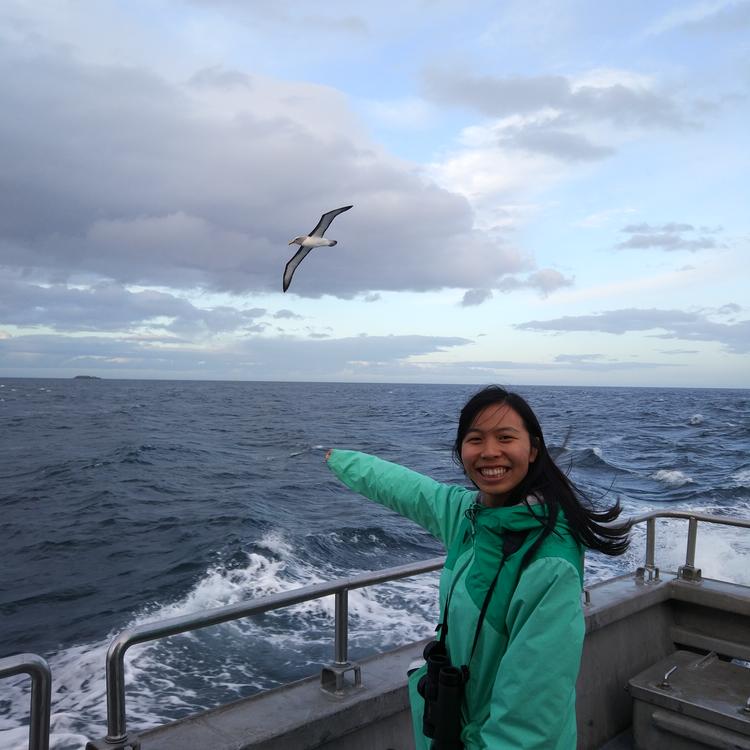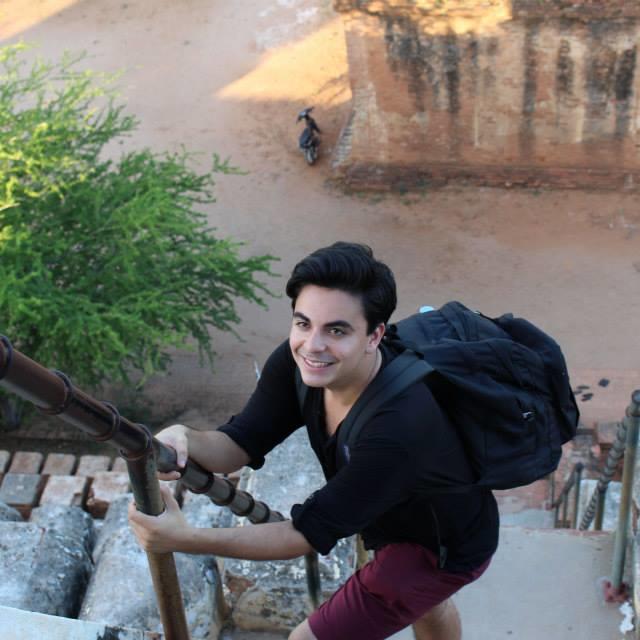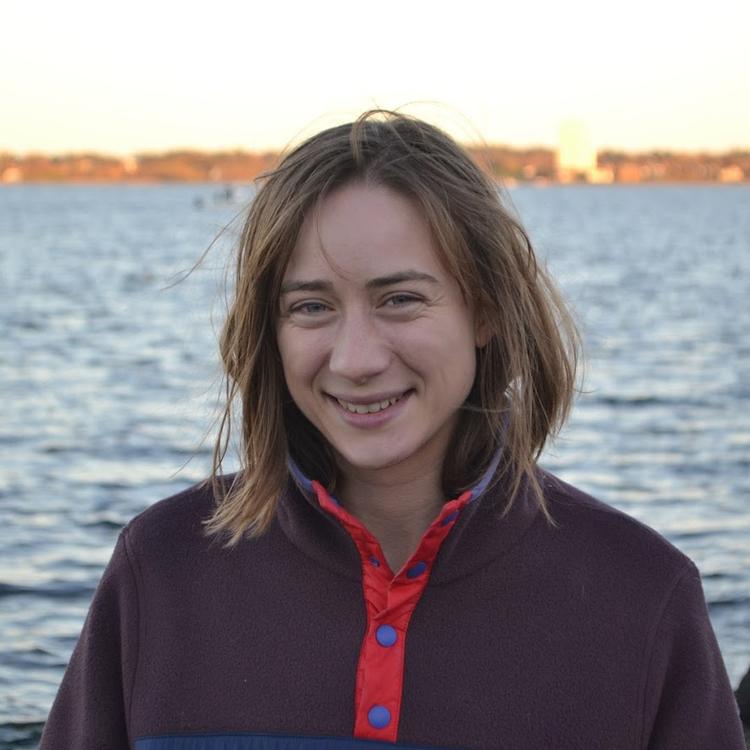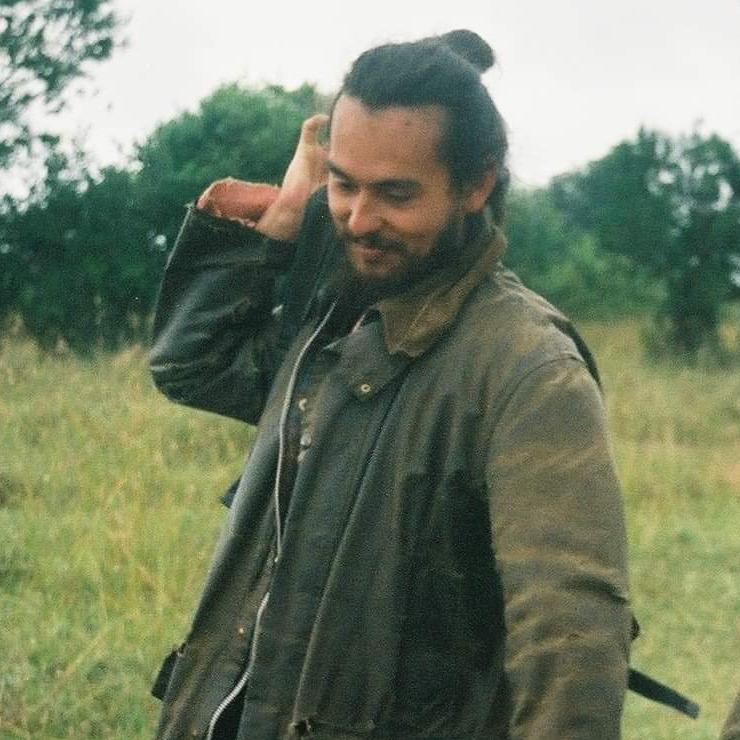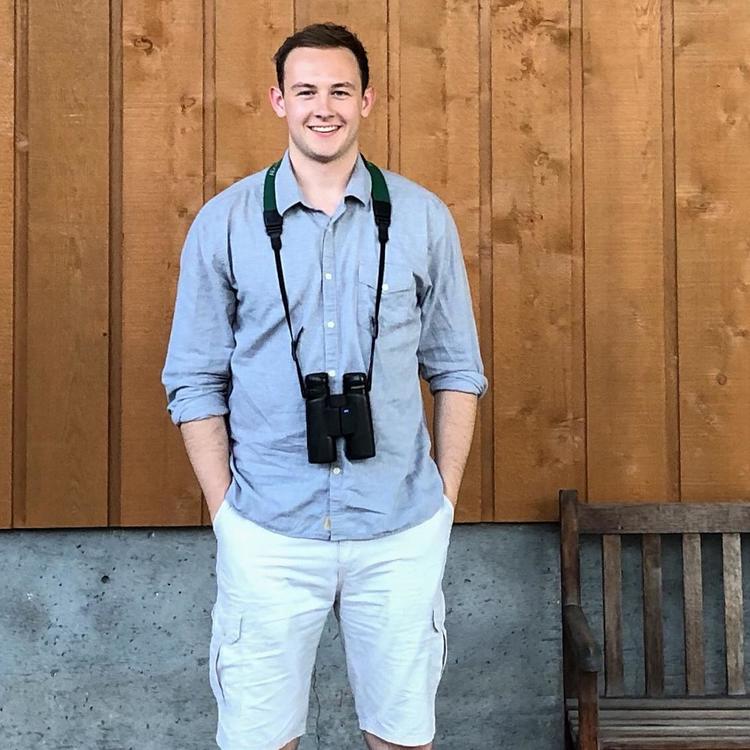The Wilcove Team
(aka The Drongos)
Members of my research group use a combination of ecology, economics, and policy research to find innovative ways to protect biodiversity around the world. Recent or ongoing projects include: conservation of migratory animals in North America and Asia; impacts of hunting and the wildlife trade on biodiversity; effects of land-use change and climate change on biodiversity in East Asia, Southeast Asia, and the Amazon; conservation of coral reefs; and nature-based climate solutions. Although many people in my research group have studied birds, we study all sorts of plants and animals, including reptiles, mammals, fish, dung beetles, and butterflies (but nothing too small to be seen with the naked eye). Prior to joining the Princeton faculty in 2001, I served as senior ecologist with the Environmental Defense Fund (1991-2001) and The Wilderness Society (1986-1991). I am an avid birdwatcher who has shamelessly used his students’ and postdocs’ research projects as a justification to chase rare birds from Brazil to Brunei and from China to Costa Rica.
I am an ecologist with a primary focus on the conservation of freshwater ecosystems. My ongoing research at C-PREE addresses how riparian vegetation can be managed to enhance its buffering potential against the impacts of land use on freshwater systems, while also supporting terrestrial biodiversity in tropical regions. I obtained my PhD in Ecology from the Federal University of Rio Grande do Sul (UFRGS - Brazil), enriched by a split tenure in the University of Washington (School of Aquatic and Fishery Sciences - Julian Olden’s lab). In the last few years, I was a visiting Professor in the Ecology and Evolution program of the Federal University of Goias (UFG) and before that I was a postdoc at the same University.
My research interest is to understand how human-induced selection of phenotypes of tuskless female elephants influences the behaviours that help to regulate ecological processes and ecosystem functioning. This will have broader impacts for understanding the hidden consequences of human activity on biodiversity by addressing fundamental and interlinked questions at the interface of ecology, evolution, and policy. Besides that, I manage the Elephant Ecology Project (EEP) in Gorongosa National Park (GNP) in Mozambique, and my work is a blend of elephant ecology, behaviour and human elephant interactions. On that, I am interested on the impacts of the recovering elephant population on the elephant social dynamics, on the park’s habitats and on human elephant conflict and coexistence dynamics.
Before joining the Drongos and the EEB, I did my Ph.D. in biodiversity management and an M.Sc. in conservation biology at the University of Kent’s Durrell Institute of Conservation and Ecology (DICE) in the UK, and a B.Sc. in ecology and conservation of terrestrial biodiversity from the Universidade Eduardo Mondlane in Mozambique.
My research interests lie at the intersection of agricultural economics and conservation science. Specifically, I hope to apply methods from agricultural economics to answer questions related to biodiversity. Some of my previous work examined the causal impact of afforestation programs on income inequality among forest farm households in Taiwan. I have also examined the causal impact of COVID-19 on metro use in Taiwan. In the future, the research questions that I hope to answer include how conservation policies affect farmland and farm households. I am also interested in studying the impact of agricultural production on biodiversity.
I completed a M.Sc. in Agricultural Economics on a Fulbright Grant at National Taiwan University in Taipei, Taiwan. I also have a B.S. in Economics from the University of California, Davis.
I am a field ecologist with broad interests in ecology, evolution, and conservation biology. My main research aims to understand how human-induced disturbances impact biodiversity. My PhD work looked at how urbanization affects stress responses and various levels of niche characteristics of passerine birds in subtropical environments in Southwest China. For my postdoc, I am working with Prof. David Wilcove to try to understand the effects of hunting or trapping on populations of birds, especially those birds migrate along the East Asian- Australasia Flyway.
Prior to Princeton, I received my PhD degree in Zoology from Sun Yat-sen University (2018), and received my master degree in Zoology (2015) and my bachelor degree in Wildlife and Nature Reserve Management (2012) from Southwest Forestry University in China. Read more about my research on my website: https://dan-liang.weebly.com/
I am a researcher deeply fascinated by biodiversity, conservation science, and bird migration. My approach often utilizes data-driven methods to investigate the impacts of global changes—such as climate change, land cover alteration, and species invasions—on biodiversity and ecosystems. My work blends ecological modeling and data analysis, aiming to enhance the effectiveness of conservation policies and to develop comprehensive conservation strategies. Notably, I have conducted evaluations of the extinction risks facing vertebrates worldwide, with a particular focus on herpetofauna and bird species.
I earned my Ph.D. from the University of the Chinese Academy of Sciences, where I also completed my first postdoctoral position. As I continue my postdoctoral journey with the Drongos at Princeton, I am motivated by the goal of promoting a harmonious relationship between humans and nature through my research on Nature-Based Climate Solutions. My research is dedicated to influencing conservation policies and practices from a local to a global scale, striving to create a sustainable future for both nature and humanity.
My research interests lie in the field of avian ecology and conservation, especially that of shorebirds migrating along the East Asian-Australasian Flyway. Combining field study, individual tracking and mathematical modeling, I plan to identify the factors affecting their selections of migration routes and stopover sites, and to see whether the understanding of shorebirds migration patterns can be extended to that of other migratory birds.
Prior to joining the Drongos, I received my B.S. from Peking University in 2014, and during my time there, I became an avid birdwatcher and also became aware of the conservation issues pertaining to birds and other organisms.
I am interested in conservation science and policy, with a particular emphasis on conservation social science and wildlife trade. My research aims to examine the complex structure of wildlife trade, particularly the socio-ecological dimensions of wildlife trade in Indonesia, and potentially elsewhere in Southeast Asia. Regarding taxa, I am interested in looking at species beyond charismatic megafauna.
Prior to joining Princeton, I worked for Wildlife Works Carbon to do research and develop technical documents on the implementation of REDD+ projects in relation to the certification and trade of carbon credits. I also have working experience with TRAFFIC, Global Initiative against Transnational Organized Crime, and World Resources Institute (WRI) Indonesia as a researcher looking at environmental crimes, notably illegal wildlife trade, illegal logging, and artisanal and small-scale gold mining. I completed an MSc in Biodiversity, Conservation, and Management at Mansfield College, University of Oxford as an Oxford-Islamic Development Bank (IsDB) Scholar (2022) and a BSc in Geography from Universitas Gadjah Mada (UGM), Indonesia (2018).
I am an ecologist and conservationist with a general interest in understanding and conserving birds and their habitats, from mudflats to mountains. My research interests lie in the ecology and conservation of migratory birds, with a particular focus on the anthropogenic impacts to migratory landbirds in the East Asian-Australasian Flyway.
Prior to joining the Drongos, I worked as a research assistant at Peking University investigating the breeding and migration ecology of Wood Snipe (which is a perfect combination of shorebird and landbird!). I completed my BSc at Fudan University, China and MSc at the University of Queensland, Australia studying migratory shorebird ecology and conservation at both flyway and global scales. I am also an avid birdwatcher and a semi-professional soccer player outside of work.
Christian J. Rivera is an Environmental Teaching Fellow and Postdoctoral Research Associate in the High Meadows Environmental Institute and is affiliated with the Department of Anthropology and the Department of Ecology and Evolutionary Biology. His interdisciplinary research program draws on his training in ecology, evolution, and conservation biology and the conservation social sciences. He holds a PhD from the University of Florida, an MA from Columbia University, and a BA from Princeton University. Rivera’s work aims to advance theory and practice under three broad themes: human-wildlife relations and interactions, dynamics of social-ecological systems, and conservation science. He has over ten years of experience working on issues of endangered species conservation, wildlife hunting and trade, biocultural approaches to conservation, and ethnoprimatology in the U.S., Southeast Asia, and Latin America. Rivera’s current research integrates approaches in anthropology and conservation biology to understand issues of wildlife utilization, consumption, and trade in human-dominated environments, notably in the urbanizing Amazon and New York City. His work applies social-ecological systems approaches towards the conservation of biological and biocultural diversity in a rapidly changing, interconnected, and urbanizing world. At Princeton he teaches courses on interdisciplinary conservation science (FRS 109: The Wildlife Trade; ENV/ANT/EEB 307: Systems Approaches to Conservation).
I am a PhD student advised by David Wilcove in the Science, Technology, and Environmental Policy (STEP) program at Princeton’s School of Public and International Affairs. My work focuses on the intersection of land use, climate impacts, and conservation ecology, with a particular focus on plant communities. I’m interested in understanding the interaction between climate change, development pressures, and conservation outcomes, and how policy implementation impacts the effectiveness of conservation mechanisms at different scales under climate change.
I graduated from the University of Chicago with bachelors in Ecology & Evolutionary Biology and Environmental Studies in 2018 and spent a year doing ecological field research focused on the impact of climate change on plant community phenology in central Florida scrub ecosystems. Prior to coming to Princeton, I spent three years working in local government in California, developing more data-driven, comprehensive approaches to flood resilience and endangered species management for a community in the Bay Area. I also worked as a Carbon Farm Planner for the Alameda County Resource Conservation District, helping local ranches and vineyards integrate carbon sequestration practices into their farming.
I am interested in biodiversity conservation and particularly how degraded
ecosystems can be restored for the benefit of both human and non-human beings. I
am also interested in employing statistical methods, such as multispecies
hierarchical models, in the service of applied ecology, while addressing fundamental
ecological questions. My past research has mostly focused on African savannas and
the interactions among herbivores (wild and domestic) and vegetation. I am currently
investigating generalisable patterns in the ways that large herbivore communities
reassemble across Africa, and the impacts of rewilding on ecosystem structure and
processes, such as primary productivity, woody vegetation, fire regimes, and carbon
sequestration.
I am interested in how humans are changing where biodiversity is distributed around the world, and my dissertation research is focused on exploring and understanding global biological change at various spatio-temporal scales. I work with bird communities in isolated forest fragments in the southern Brazilian Amazon to study the mechanisms underlying gradual species loss following local reductions in habitat area. At a broader scale, I use a combination of computational and mathematical approaches to understand how patterns of macroecological change are caused by economic development and trade globalization.
My scientific interests stem from a long-time interest in birds, reptiles, and amphibians, and I approach much of science from an understanding of these organisms. I am an avid birdwatcher, and I enjoy participating in birding competitions, working on my life list when I travel for fieldwork, and exploring nature in the more remote corners of New Jersey (they exist!). Before coming to Princeton, I did my undergrad at Cornell University, where I graduated with a BS in Biological Sciences. At Cornell, I worked with the Cornell Lab of Ornithology on various projects, including writing species accounts for South American birds in the Merlin bird ID app. After that, I worked in Pete Marra’s migratory ecology lab at Georgetown University, before moving to Princeton and joining the Drongos.
Drongo Flock Sightings
-

Past and present members of the C-PREE/EEB community at the International Congress of Conservation Biology in Kigali, Rwanda
L to R: Paul Elsen (former EEB doctoral student and C-PREE postdoc, now at Wildlife Conservation Society), Tong Mu (EEB doctoral student and C-PREE postdoc), Christian Rivera (HMEI postdoc), Dan Liang (C-PREE postdoc), Liang Ma (former C-PREE postdoc, now at Sun Yat-sen University), Alex Wiebe (EEB doctoral student).
Drongo Alumni
Bethany Bradley (former postdoc): Bethany studied the impact of climate change on invasive plants for the Western USA from 2006-2006. She is now a faculty member at the University of Massachusetts at Amherst.
Zuzana Burivalova (former postdoc): Zuzana focused on innovative ways to prioritize sites for conservation in Southeast Asia and New Guinea using a combination of fieldwork and data-mining. She is now a faculty member at the University of Wisconsin - Madison.
Charlotte Chang (former graduate student): Charlotte studied the ecological and social dynamics of hunting in Yunnan. She is now a faculty member at Pomona College.
Willandia Chaves (former postdoc): Willa studied how urbanization affects the consumption of wild animals as food for people in the Brazilian Amazon from 2017-2020. She is now a faculty member at Virginia Tech.
Christopher Crawford (former graduate student): Chris explored the potential for rural land abandonment around the world to produce lasting benefits for biodiversity. He is now working for the Chief Scientist at the US Department of Agriculture.
David Edwards (former postdoc): David studied patterns of biodiversity in primary once-logged and twice logged forests in Southeast Asia. He is now a faculty member at the University of Cambridge.
Michael Esbach (former postdoc): Michael studied how natural resource management by indigenous communities in the Ecuadorian Amazon affected biodiversity and community welfare. He is now at the Gordon and Betty Moore Foundation.
Paul Elsen (former graduate student): Paul studied the ecology and conservation of bird communities in the Himalayas. He is now at the Wildlife Conservation Society.
Lyndon Estes (former postdoc): Lyndon modeled how climate change is likely to shift maize and wheat cultivation in South Africa, as well the implications of those shifts to biodiversity. He is now a faculty member at Clark University.
Brendan Fisher (former postdoc): Brendan studied the economics of logging and oil palm agriculture in Southeast Asia. His is now a faculty member at the University of Vermont.
Eyal Frank (former postdoc): Eyal studied the protection of wildlife threatened by international trade. He is now a faculty member at the University of Chicago.
Xingli Giam (former graduate student): studied the conservation of freshwater biodiversity in Southeast Asia from 2009-2014. He is now a faculty member at the University of Tennessee - Knoxville.
Jonathan Green (former postdoc): studied the ecological and socioeconomic issues related to the conservation of shorebirds (e.g. spoon-billed sandpiper) wintering in Southeast Asia during 2012-2014. He is now at the Stockholm Environment Institute.
Nathan Gregory (former graduate student): Nathan studied how prescribed fire and Massai pastoralism affected bird diversity in the Sayannas of East Africa. He is now at the Irvine Ranch Conservancy.
Fengyi (Freda) Guo (former graduate student): Freda studied the stopover ecology and conservation of migratory songbirds in eastern North America. She is now a postdoc at the Cornell Lab of Ornithology and the Atkinson Center at Cornell University.
Bert Harris (former postdoc): studied the impact of the bird trade in populations of wild birds in Indonesia from 2012-2015. He is now at the Clifton Institute.
Josh Hooker (former postdoc): From 2005-2008, Josh studied the impacts of climate change on bird communities in North America. He is now at the European Commission Joint Research Center.
Fangyuan Hua (former postdoc): Fangyuan studied the biodiversity impacts of China's reforestation programs. She is now a faculty member at Peking University.
Lian Pin Koh (former graduate student): Pin was a graduate student from 2004-2008, studying the impacts of oil-palm agriculture on biodiversity in Southeast Asia. He is now a faculty member at the National University of Singapore.
Trond Larsen (former postdoc): Trond was a WWF Fuller Postdoctoral Fellow from 2008-2010. He used dung beetles as a model system for developing conservation strategies in the Andes-Amazonia region. He is now at Conservation International.
Janice Ser Huay Lee (former postdoc): Janice studied the expansion of oil palm agriculture in Southeast Asia and its impacts on biodiversity. She is now a faculty member at the Nanyang Technological University, Singapore.
Tien Ming Lee (former postdoc): Ming studied the social drivers of the wild bird trade in Indonesia. He is now a faculty member at Sun Yet-sen University.
Bing Lin (former graduate student): Bing studied the human dimensions of coral reef conservation. He is now a postdoc with the Thriving Oceans Research Hub at the University of Sydney.
Liang Ma (former postdoc): Liang developed physiologically-based models that can identify the climate refugia where desert-dwelling birds and reptiles around the world are likely to persist in the wake of climate change. He is now a faculty member at Sun Yat-sen University.
Dave Marvin (former research assistant): From 2006-2008, Dave created a novel web-mapping system to collect data on the distribution and abundance of invasive plants in the Southeast U.S. He is now co-founder and CEO of Salo Sciences.
Emily Nicholson (former postdoc): Emily was a postdoc from 2006-2007. Working in collaboration with The Nature Conservancy and the Florida Natural Areas Inventory, she developed new quantitative methods for assessing progress in biodiversity conservation. She is now a faculty member at Deakin University.
David Pattemore (former graduate student): David studied how the loss of native vertebrates in New Zealand has affected the pollination ecology of the native plants there; he also studied the degree to which non-native vertebrates are assuming the pollination roles of the missing natives. He is now with Plant & Food Research in New Zealand.
Rebecca Senior (former postdoc): Rebecca's main project analyzed data from the IUCN Red List to understand which conservation actions have been successful in recovering threatened species. She is now a faculty member at Durham University.
Jacob Socolar (former graduate student): Jacob studied the impacts of land-use change on Amazonian birds. He is now at BeZero Carbon.
Umesh Srinivasan (former postdoc): Umesh studied the ecology and conservation of Himalayan birds. He is now a faculty member at the Centre for Ecological Sciences, Indian Institute of Science.
Morgan Tingley (former postdoc): explored the factors driving long-term changes in the avifauna of the Great Smokies Mountains from 2012-2014 with support from David H. Smith Conservation Research Fellowship Program. He is now a faculty member at UCLA.
Tim Treuer (former graduate student): Time studied the factors affecting natural forest restoration in Costa Rica. He is now a writer and researcher living in his home state of Alaska.
Will Turner (former postdoc): Will was a post-doctoral fellow from 2003-2006, working on issues pertaining to reserve design and management. He is now with Conservation International.
Charles Yackulic (former postdoc): Charles modeled the spatial and population dynamics of spotted owls and barred owls in the Pacific Northwest. He is now with the USGS Biological Resources Division.
Yiwen Zeng (former postdoc): Yiwen focused on quantifying the effectiveness of the world’s protected areas in safeguarding species. He also studied how the degradation or downsizing of protected areas increases the risk of extinction for species. He is now a faculty member at Nanyang Technological University.

